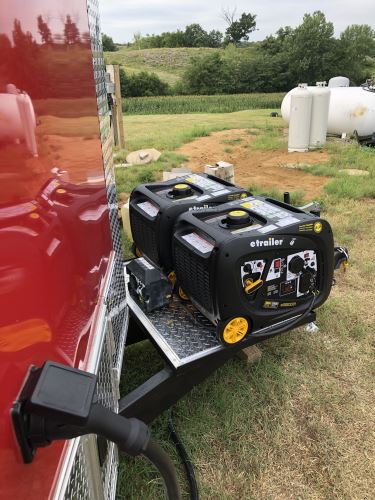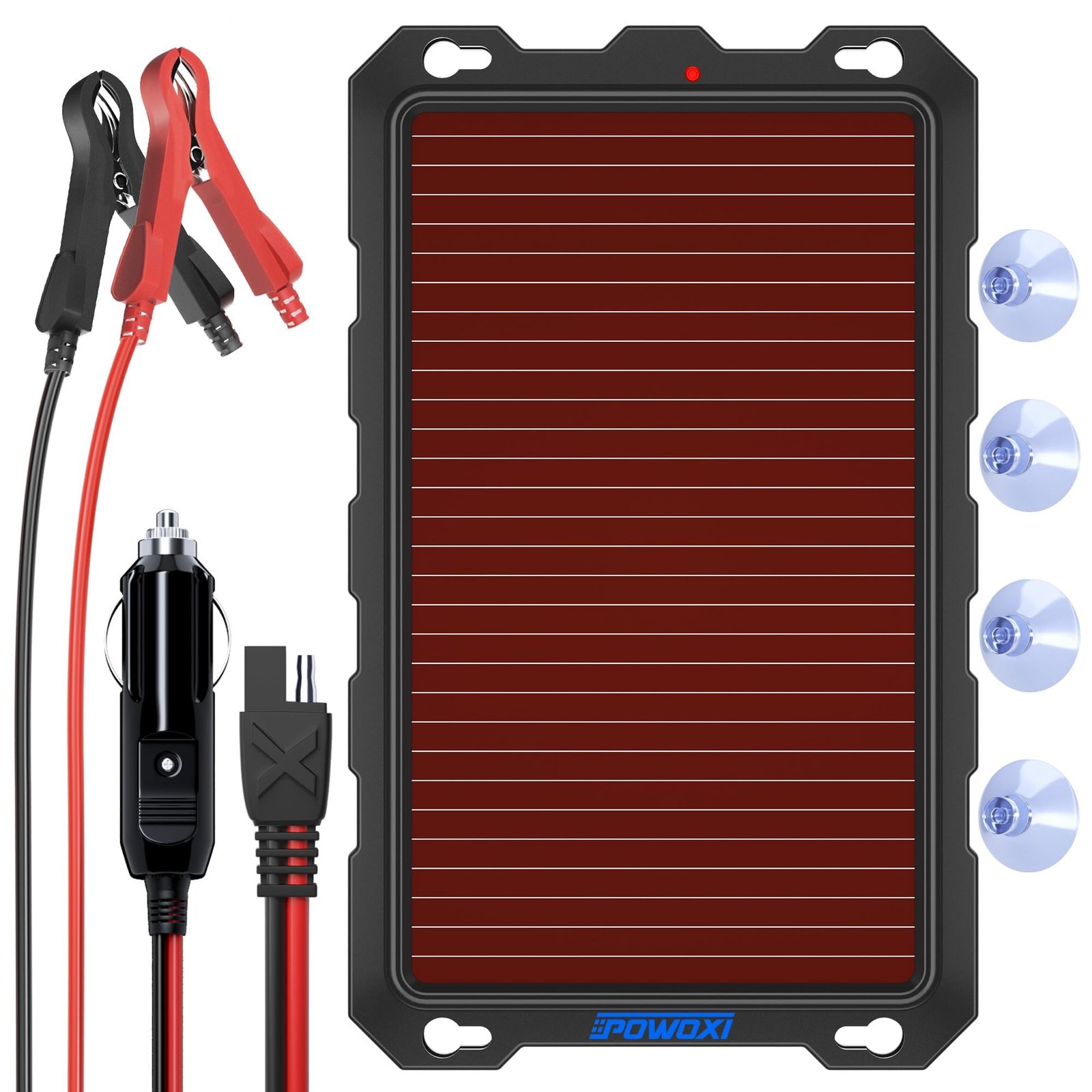Yes, you can run your RV generator while driving. But, there are some things you should know.
Doing so can power appliances and keep your RV comfortable. Running your RV generator on the road is a common practice. It allows you to use the air conditioner, fridge, and other electrical devices. But, safety and efficiency are important to consider.
Some RV owners worry about fuel consumption or potential damage. Understanding the pros and cons helps you make an informed choice. This guide will explore the benefits and potential risks. We will also cover safety tips to ensure a smooth journey. Stay with us as we dive into the details.

Credit: www.auto-trail.com.au
Introduction To Rv Generators
Recreational vehicles (RVs) offer the freedom to travel with home-like comfort. An essential component of this comfort is the RV generator. RV generators provide the power needed for various appliances and systems inside the RV. They make travel more enjoyable by ensuring a continuous supply of electricity.
Purpose And Benefits
The primary purpose of an RV generator is to supply electricity. This electricity powers the air conditioning, microwave, fridge, and other electrical devices. RV generators are designed to be efficient and reliable.
Benefits of using an RV generator include:
- Continuous power supply for all your appliances.
- Improved comfort during long trips.
- Ability to camp in remote locations without power hookups.
Having an RV generator means you can enjoy your trip without worrying about power shortages.
Common Concerns
Despite the benefits, some concerns about running an RV generator while driving exist. Let’s address these common concerns:
- Safety: Many wonder if it is safe to run the generator while the vehicle is moving. Modern generators are designed with safety features to prevent accidents.
- Fuel Consumption: Running a generator can use extra fuel. However, this can be managed by monitoring usage and turning off the generator when not needed.
- Noise: Generators can be noisy. Newer models are quieter, and proper maintenance can reduce noise levels.
- Maintenance: Regular maintenance ensures the generator works efficiently and safely. It also prolongs the life of the generator.
By understanding these concerns and managing them properly, you can ensure a smooth journey with your RV generator.

Credit: www.etrailer.com
Running Rv Generator While Driving
Running an RV generator while driving can be a topic of debate. Some RVers find it useful, while others have concerns. Understanding the scenarios and uses can help you decide.
Possible Scenarios
Various scenarios might require you to run the generator while driving. Here are a few:
- Extreme weather conditions: Keeping the interior cool or warm.
- Long drives: Powering appliances during extended trips.
- Traveling with pets: Ensuring their comfort with climate control.
Typical Uses
Running the generator while driving serves many purposes. Common uses include:
- Operating air conditioning: Keeping the RV cool in hot weather.
- Powering kitchen appliances: Preparing meals on the road.
- Charging devices: Keeping laptops, phones, and tablets powered.
These uses make long trips more comfortable and convenient.
Safety Considerations
Running an RV generator while driving can be safe if you follow specific guidelines. Ensure the generator’s exhaust system is in good condition and vented properly. Always check for leaks and maintain adequate ventilation to prevent carbon monoxide poisoning.
Running an RV generator while driving can be convenient. Yet, ensuring safety is crucial. Let’s explore key safety considerations.
Ventilation Requirements
Proper ventilation is essential. RV generators emit exhaust fumes. These fumes can be dangerous. Ensure exhaust fumes exit the vehicle. Use exhaust extensions if needed. Check for leaks in the exhaust system. Carbon monoxide detectors are a must. Install them inside the RV. Test them regularly for safety.
Fire Hazards
Running the generator poses fire risks. Heat and fuel can cause fires. Keep the generator clean and well-maintained. Check fuel lines for cracks or leaks. Ensure the generator has space around it. Avoid storing flammable items nearby. Have a fire extinguisher on hand. Know how to use it in an emergency. “`
Legal Regulations
Understanding the legal regulations for running an RV generator while driving is crucial. Different regions have varied rules. Compliance ensures safety and avoids legal trouble. Below are the main legal aspects to consider.
State Laws
Each state in the US may have its own rules regarding running an RV generator on the road. Some states allow it, while others have restrictions. It’s essential to know the laws of the states you will drive through.
| State | Generator Use |
|---|---|
| California | Allowed with restrictions |
| Texas | No specific restrictions |
| New York | Not recommended |
Check the local Department of Motor Vehicles (DMV) for accurate information. Understanding these laws helps prevent fines or penalties.
Federal Guidelines
Federal guidelines also play a role in regulating RV generator use. The Federal Motor Carrier Safety Administration (FMCSA) provides some rules for commercial vehicles. While these rules may not directly apply to private RVs, they offer a safety framework.
- Exhaust Management: Ensure exhaust fumes do not enter the cabin.
- Fire Safety: Keep a fire extinguisher handy.
- Noise Control: Follow noise regulations in residential areas.
These guidelines ensure safe generator operation. They also promote a quiet and pollution-free environment.
Fuel Consumption
Understanding the fuel consumption of your RV generator while driving is crucial. It helps in managing fuel costs and planning long trips. Running the generator ensures your appliances are working, but how efficient is it?
Efficiency Factors
Several factors determine the efficiency of your RV generator. The generator’s age, maintenance, and type play key roles. A well-maintained generator consumes less fuel. Newer models are generally more efficient.
Another factor is the load on the generator. Higher loads mean more fuel consumption. Running multiple appliances simultaneously will increase fuel usage. Consider the necessary appliances while driving to optimize efficiency.
Cost Implications
Fuel consumption directly impacts your travel budget. Generators can consume up to one gallon of fuel per hour. This can add up quickly on long trips.
Here’s a simple table to understand the cost better:
| Generator Load | Fuel Consumption (Gallons/Hour) | Cost (Based on $3/Gallon) |
|---|---|---|
| Light Load | 0.5 | $1.50 |
| Medium Load | 0.75 | $2.25 |
| Heavy Load | 1.0 | $3.00 |
Planning your trips and managing generator use can save money. Monitoring fuel levels and costs is essential to avoid surprises.

Credit: www.cruiseamerica.com
Maintenance Tips
Maintaining your RV generator is essential for its longevity and performance. Proper maintenance ensures the generator runs smoothly while driving. Follow these maintenance tips to keep your generator in top shape.
Routine Checks
Regularly inspect your RV generator for any signs of wear or damage. Check the oil levels and change the oil every 100 hours of use. Clean or replace the air filter to prevent dust buildup. Inspect the spark plug and replace it if it looks worn. Ensure the fuel filter is clean to avoid clogs.
Run the generator for at least an hour every month. This keeps the internal parts lubricated. Check the exhaust system for leaks or blockages. Ensure all connections are secure and free of corrosion. These routine checks can prevent many common issues.
Common Issues
One common issue is the generator not starting. This could be due to a dead battery or low oil levels. Check both and address any problems. Another issue is the generator running rough or stalling. This might be due to a dirty air filter or clogged fuel filter. Clean or replace these parts as needed.
Overheating is another frequent problem. Ensure the cooling system is working properly. Check the coolant levels and top up if necessary. Inspect the fan and radiator for any blockages. Lastly, unusual noises can indicate mechanical problems. If you hear anything out of the ordinary, consult a professional.
Alternatives To Running Generator
If you’re considering alternative ways to power your RV, there are several options. Running your generator while driving isn’t the only solution. Below, we’ll explore Battery Banks and Solar Power as viable alternatives.
Battery Banks
Battery banks are a reliable alternative to running your generator. They store energy and supply power to your RV appliances. You can charge them while driving or at RV parks. They are silent, unlike generators, and they don’t emit fumes. This makes them an eco-friendly choice.
Here are some benefits of using battery banks:
- Quiet operation
- No fuel required
- Environmentally friendly
Battery banks come in various sizes and capacities. They can power small appliances for hours. Larger setups can handle more demanding appliances. It’s essential to choose the right capacity based on your needs.
Solar Power
Solar power is another excellent alternative. Solar panels can be installed on the roof of your RV. They harness the sun’s energy to charge your batteries. This method is sustainable and cost-effective in the long run.
Benefits of solar power include:
- Renewable energy source
- Low maintenance
- Reduces reliance on fuel
Solar power systems can be customized to fit your energy needs. They are particularly useful in sunny regions. Even on cloudy days, they can still generate some power. This makes them a versatile solution for many RV owners.
Frequently Asked Questions
Can You Run An Rv Generator While Driving?
Yes, you can run an RV generator while driving. It powers appliances and keeps your RV comfortable.
Is It Safe To Run Rv Generator On The Road?
Yes, it is generally safe. Ensure proper ventilation and follow the manufacturer’s guidelines for safe operation.
Does Running The Generator Use More Fuel?
Yes, running the generator uses additional fuel. The consumption rate depends on the generator’s size and load.
Will The Generator Charge Rv Batteries While Driving?
Yes, the generator can charge RV batteries while driving. This ensures your batteries remain fully charged.
Conclusion
Running your RV generator while driving can be safe. Follow manufacturer guidelines and safety tips. Ensure proper ventilation to prevent carbon monoxide buildup. Regular maintenance checks keep your generator in good condition. Consider power needs and fuel consumption. Safety first, always.
Happy travels!




